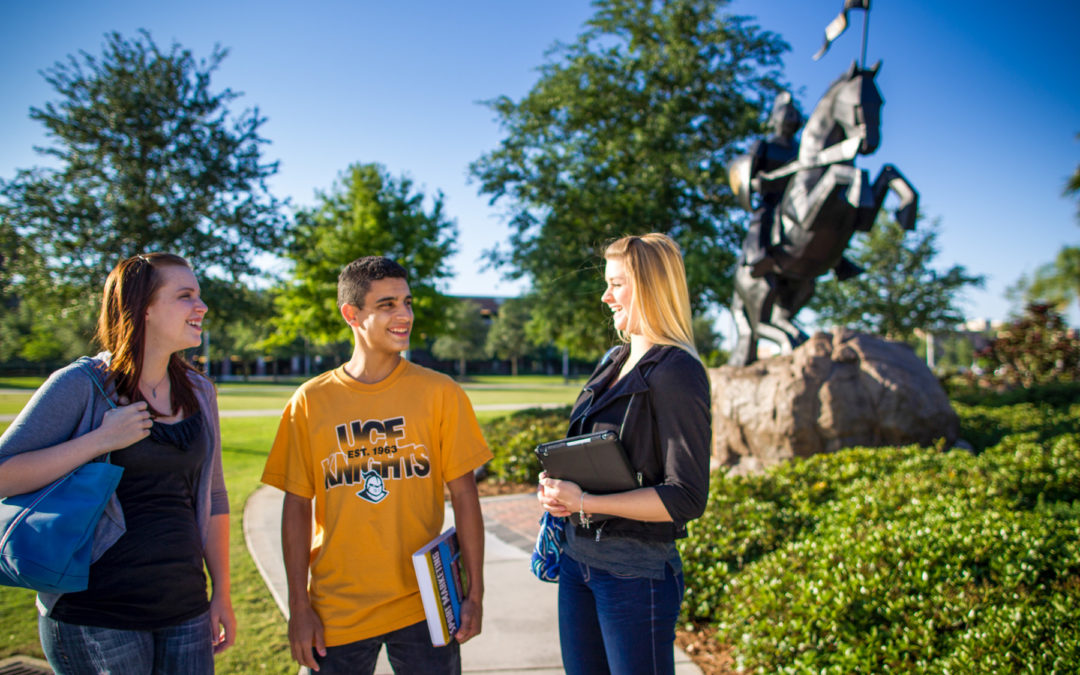by: Desire George, Higher Education Administration Graduate, Candidate, University of Central Florida
The first year of college is important. How a student fares in their first year not only has an impact on whether they return for a second year, but it also has an impact on whether or not they graduate. The first year of college is filled with challenges and new experiences that any person embarking on a new journey would find challenging. This can be increasingly difficult first-generation students.
Higher education has created various initiatives aimed at increasing student success among first generation students. One of these initiatives is summer bridge programs. Bridge programs typically occur between high school graduation and the beginning of the fall semester and can range from 2-7 weeks. Summer bridge programs often include academic advising, orientation to the college campus and resources, skill development necessary for college success, and/or accelerated academic coursework.
Historically, first generation students have trailed behind their non-first-generation peers in persistence and graduation rates. In a study following 2003-2004 first year college students, 26 and 33 percent of students whose parents did not receive a bachelor’s degree left college 3 years after enrolling. Only 14 percent of students whose parents did receive a bachelor’s degree had not persisted. The transition for first-generation college students can be compounded by unique cultural, academic, and social factors that can contribute to their lower attainment rates. These factors can be both academic and non-academic.
Cultural capital is commonly defined as the knowledge and skills an individual possesses that they learn from their family, culture, and surroundings. The more capital one has, the more likely they are to succeed. With this, first-generation students are placed at an immediate disadvantage. Consequently, many first-generation students receive little to no information or advice regarding postsecondary education.4 However, through summer bridge programs first-generation students are able to receive some of that knowledge that they lack before they are immersed into the fall semester.
Perhaps one of the biggest barriers that first-generation students face is simply making it to college. Among a study of high school sophomores in 2002, only 72 percent of students whose parents did not attend college had enrolled in postsecondary education.3 Summer bridge programs often intentionally and unintentionally serve as an alternative admissions option for first-generation students, therefore providing more access.
Finances have a significant impact on college success, as studies show that low-income students are less likely to persist than middle-income students. When calculating grant and loan assistance, first generation students still fell $3600 short of the amount needed to pay for college. This deficit in assistance is likely a consequence of the decreased cultural capital that first-generation students possess. Due to the lack of or misinformation they receive, first-gen students may not know about the different financial resources available, or how to access them. Many summer bridge programs work to alleviate this burden by covering the costs of attendance for the summer and/or providing participants with scholarships or grants. Some programs may also create programs and services designed to assist students with completing their FAFSA or obtaining other financial assistance.
Sense of belonging among college students can be defined as a student’s “perceived social support on campus, a feeling or sensation of connectedness, the experience of mattering or feeling cared about, accepted, respected, valued by, and important to the group community or others on campus.”2 Some first-generation students may not have the support of their families to pursue higher education, so building that support once they arrive to campus is vital.6 The concentrated design of summer bridge programs increases the likelihood of students to form relationships prior to the fall semester.
“Proactively educating the first-generation college-going population about vetted undergraduate good practices, and then engaging them immediately upon entry into college, not only enhances the likelihood of successful student development, but increases the likelihood of their academic success, positive social integration, and retention through college.”
Summer bridge programs work to combat a plethora of barriers that first-generation students face in college, before they even reach the campus. They increase access, alleviate financial burden, and provide first-generation students with vital academic, cognitive, and social tools. Summer bridge programs are a key component in the advancement and success of first-generation students in the first year of college and beyond.
Sources:
Cataldi, E. F., Bennett, C. T., & Chen, X. (2018). Stats in Brief: First Generation College Students College Access, Persistence, and Post bachelor’s Outcomes. National Center for Education Statistics
Strayhorn, T. (2006). Factors influencing the academic achievement of first-generation college students. NASPA Journal, 43(4), 82-111.
Angerame, L. (2017). Cultural capital and U.S. education. Salem Press Encyclopedia.
Somers, P., Woodhouse, S., & Cofer, J. (2004). Pushing the boulder uphill: The persistence of first-generation college students. NASPA Journal, 41(3), 418-435.
Engle, J., & Tinto, V. (2008). Moving beyond access – College success for low-income, first-generation students. Washington, DC: The Pell Institute.
Padgett, R., Johnson, M., & Pascarella, E. (2012). First-Generation undergraduate students and the impacts of the first year of college: Additional Evidence. Journal of College Student Development 53 (2).

